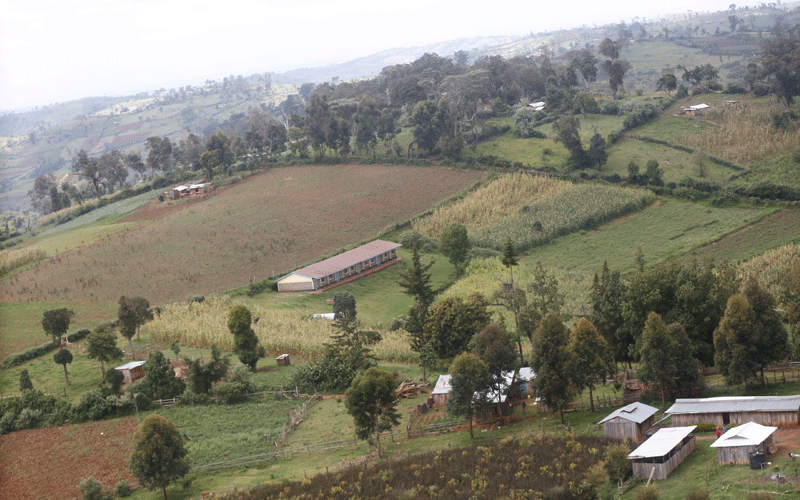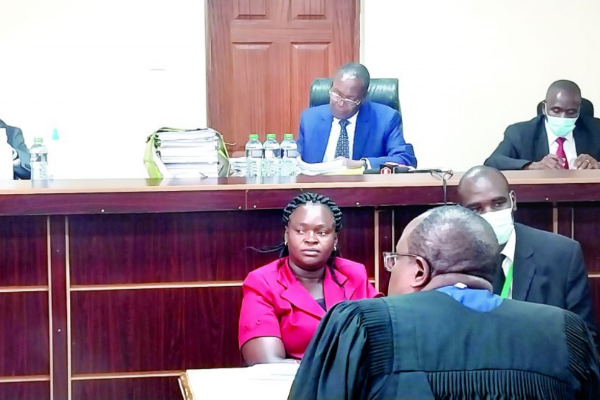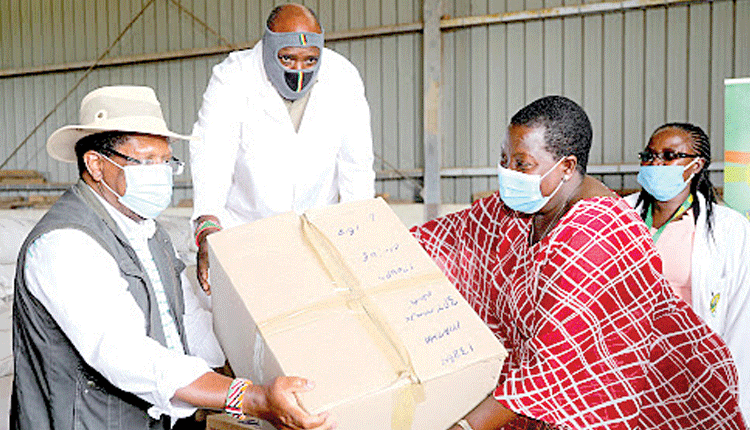Maasai Mau evictees yet to get alternative homes, since October

Three months after they left places they had called home for more than two decades, most Maasai Mau forest evictees are yet to find alternative settlements.
Since their eviction in October, most of the more than 10,000 families are yet to find new homes.
Most say it will take long for them to move on, and have accused the government of treating them like second class citizens who do not deserve a roof over their heads, food, and other necessities.
Their situation is being aggravated by the ongoing heavy rains. Further, politicians who were in the forefront in pressing the government to resettle or compensate them have seemingly forgotten them and are now in the thick of Building Bridges Initiative (BBI) politics.
Harvest crops
“We are on our own. Those who we thought cared have abandoned us,” says William Cheruiyot, formerly of Sierra Leone settlement on the western side of the sprawling forest, which is part of the 22 forest blocks that make up the 400,000-hectare Mau Complex.
He says evictees’ welfare has been dealt a major blow after the government denied them permission to go back and harvest their crops which included maize, vegetables, potatoes, tobacco and tea.
Cheruiyot and his family, who now live with his relatives in Tendwet area near his former home, says evictees were planning to harvest the crops, sell them.
Before they left, he says, those who had crops in the farms registered with the Joint Mau Forest Security Command for them to go back and harvest later. He now questions why the government changed its mind and denied them access to the forest.
“We were not going to stick there. We were to harvest and go out,” he adds.
Most children of the evictees are out of schools, as they follow their parents in the search for new homes.
The cold and wet weather, which predisposes them to recurrent pneumonia, cold and other upper respiratory tract infections, is severely affecting the elderly and children.
Bury relatives
“I’ve not yet found a suitable school for my children. When I finally settle, they will be enrolled in schools in the neighbourhood,” says Christine Chepkemoi, a single mother of four who now lives with her cousin Peter Kibet in Olmekenyu area.
She says her three-acre parcel of land at Enoosogon settlement in the reclaimed forest was her permanent home after she sold her late husband’s one-acre farm at Merigi area in Bomet to buy it on a willing seller, willing buyer basis.
Chepkemoi adds that land in the forest was irresistible because it was fertile and cheap, forcing people to sell what they had elsewhere.
“Some settlers had alternative places. When I sold my late husband’s land to buy the forest one in 2002, I knew it was permanent,” she says.
Her cousin says she will live with him until she finds an alternative place. “They ought to have been given enough time to look for places to go to. Most of the settlers knew the forest as their homes. Most even buried their relatives there,” says Kibet.
Muraguri Mwai, the Narok Kenya Forest Service Ecosystem Coordinator, says most parts where settlements were have started regenerating, attributing it to the rains which have continued since the settlers left.
He says the more than one million trees which were planted shortly after the evictees left are doing well, adding that in about 10 years, all sections that had been degraded to give room for settlements, will have recovered.
Get justice
Fifteen schools which were built inside the forest have been turned into houses and offices for the security personnel comprising Kenya Forest Service, Kenya Wildlife Service and administration police Rapid Deployment Unit under the Joint Mau Security Command.
Johana Ngeno, the Emurua Dikirr MP has, however, denied that politicians have abandoned the evictees.
“We haven’t abandoned our people. We will stand with them until they get justice because they legally acquired the land, and until they get alternative settlements,” he said.
“When we wanted to resettle them just outside the forest, the government refused, claiming that they should be more than 10km from the forest boundaries. We are still exploring ways to address the issue,” he added.
George Natembeya, the Rift Valley Regional Coordinator, maintains that nobody will be allowed near the forest, adding that politicians who wanted to resettle their supporters should look for land away from the forest.
“If they want to do it, they should resettle them more than 10km outside the forest boundaries,” he says.










